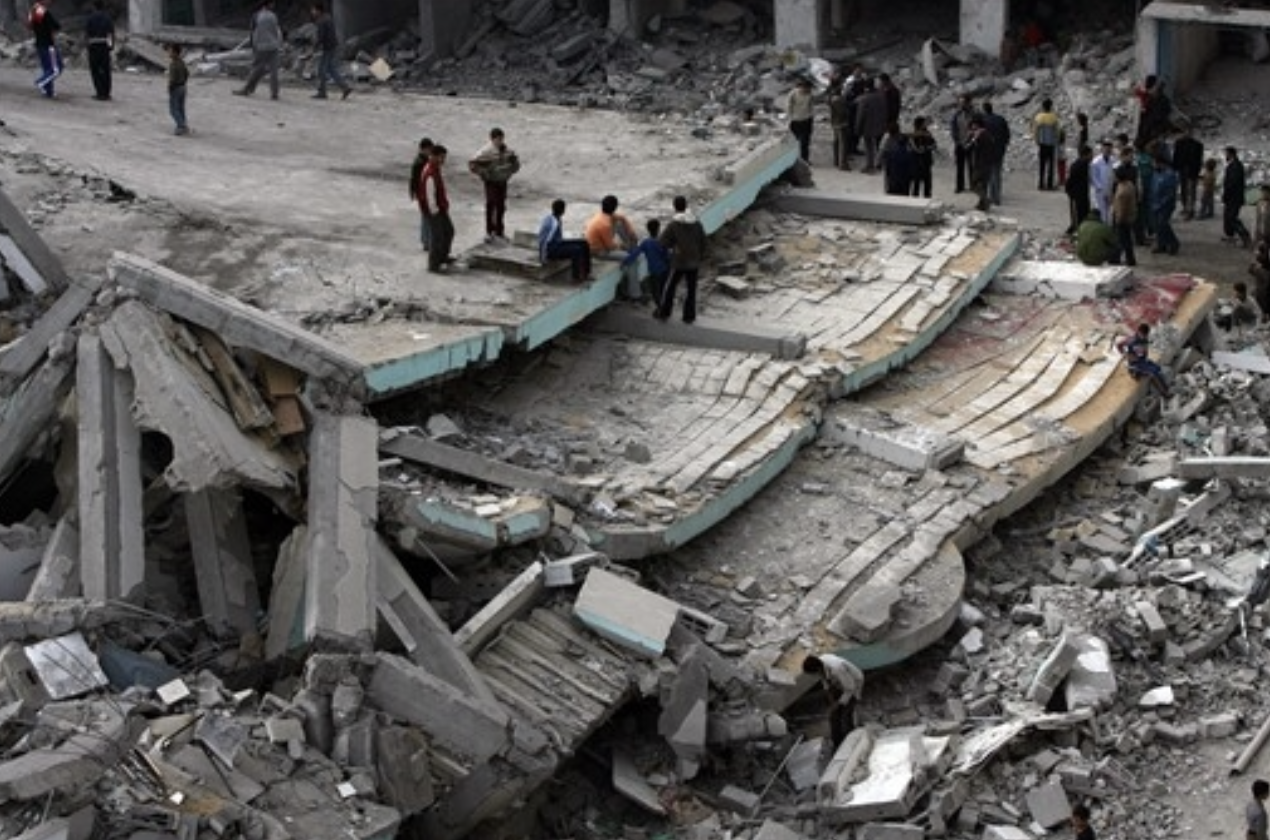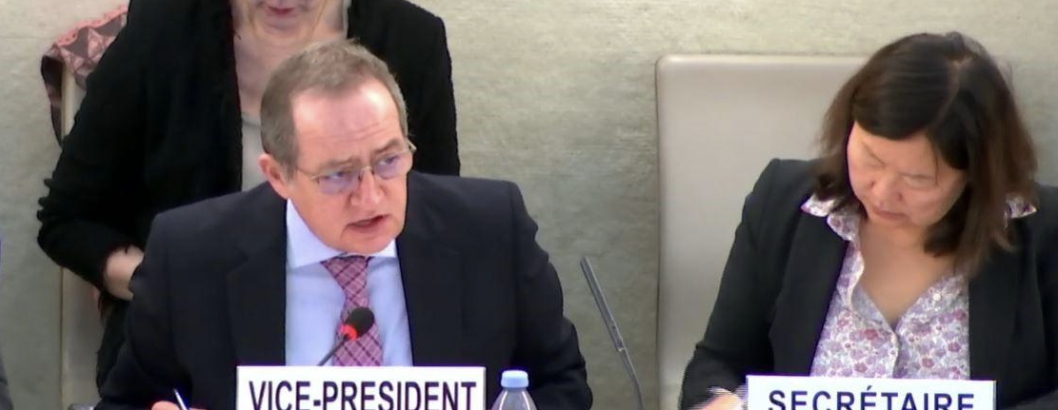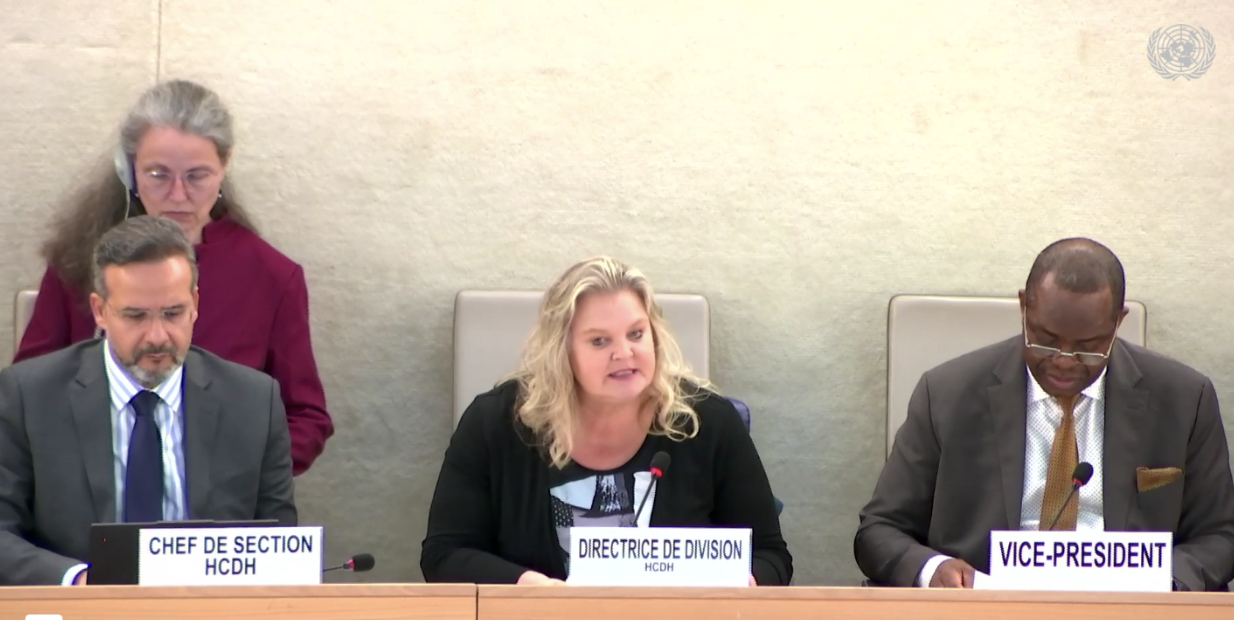In light of Israel’s increasing starvation crimes, famine in Gaza Strip must be officially declared
Geneva International Center for Justice and forty-seven other non-governmental organizations are calling for the official recognition of the famine currently happening in the Gaza Strip. The organisations emphasise the importance of condemning the use of starvation by Israel as a means of war and terror. This collective demand highlights the urgent need for international action and accountability.
Famine must be declared in the Gaza Strip by all relevant official authorities and competent United Nations and international institutions. Due to Israel’s crimes of starvation, people across the entire Strip are currently facing the rapid spread of famine and increasingly high rates of acute malnutrition. All groups, especially children, are affected.
Food insecurity is increasing throughout the Gaza Strip due to Israel’s insistence on committing the crime of starvation and using it as a weapon of war against the Palestinian people in the Strip, which is part of a larger crime of genocide.
Since the Israeli army’s operations in Rafah City, in the south of the Gaza Strip, which began on 7 May, food insecurity has significantly risen and was preceded by Israel’s blocking the entry of humanitarian aid trucks through the Rafah border crossing on 6 May. Thousands of trucks on the other side of the Rafah crossing have been at a standstill for weeks and are inaccessible to residents whose lives depend on them.
This affects the 2.3 million residents of the Gaza Strip, half of whom are children, and particularly the people in the northern Gaza Valley, where supplies have run out.
Under the framework of preventing the crime of genocide against Palestinian civilians, Israel must be pressured to act immediately to implement the precautionary measures announced by the International Court of Justice regarding the opening of the Rafah crossing, in order to provide basic services and much-needed humanitarian aid for the people of the Strip.
The majority of goods entering the Gaza Strip through the Kerem Shalom (Kerem Abu Salem) crossing are for merchants, and the people living there—the majority of whom have lost their means of support—must pay for these goods. This means that even with the very limited aid that Israel has provided, the amount of relief needed to address the growing number of displaced people in the south is insufficient. Moreover, the lack of cash flow and the collapse of job opportunities and local production has made all civilians in the Strip dependent on foreign humanitarian aid; therefore, its complete cessation would deprive them entirely of access to food and necessities that are essential for survival.
These goods are completely blocked from getting to the areas north of the Gaza Valley, including the Gaza City and North Gaza governorates, where people are experiencing a severe shortage of food supplies including vegetables, meat, and other foods.
The northern Gaza Strip saw yet another decline on 11 May, the night Israeli forces returned to resume a vicious military campaign against Jabalia and its camp. Tens of thousands were forced to either flee their homes with their meagre food supplies and possessions, or remain in shelter centres under siege and bombardment. No food supplies made it to these centres.
Over 800,000 residents and internally displaced people were forcibly evacuated from Rafah to the west of Khan Yunis and Deir al-Balah. Meanwhile, roughly 100,000 people were evacuated from Jabalia, along with its camp, and Beit Lahia, which is located in the north of the Gaza Strip, west of Gaza City.
Only a small amount of very low-quality aid has been delivered via the United States-designed pier; the majority of this aid has not been distributed throughout the Strip. The dock is seemingly just an official tool used by the US to defuse criticism levelled at Israel for continuing its crime of starvation and preventing relief supplies from reaching the besieged enclave by land. Yet, according to numerous UN agencies, international humanitarian organisations, and the International Court of Justice—particularly in its second ruling on 28 March—land border crossings continue to be the most efficient means of delivering aid.
Additionally, a second report from the working group responsible for IPC classification, which addresses the food situation in the Gaza Strip, has confirmed that the Strip’s entire population (2.23 million people), including residents in the governorates of Deir al-Balah, Khan Yunis, and Rafah, are experiencing high levels of acute food insecurity. Half of these people are in IPC Phase 5, or the disaster/famine stage.
According to the report, which was released on 18 March, all three of the famine thresholds have either already been reached, or are very likely to be reached, in the North Gaza and Gaza City governorates. In these areas, the famine threshold for acute food insecurity has already been reached, the famine threshold for acute malnutrition has most likely already been reached, and the famine threshold for mortality is anticipated to accelerate and be exceeded soon. Due to these factors, the IPC concluded that famine is predicted to strike at any point between the report’s publication date and May.
Even before the recent rapid deterioration of the Gaza Strip’s food situation, the report’s estimates—which are based on technical foundations and equations that make up the foremost internationally recognised classification system for cases of malnutrition and famine—raise the alarm about the need for immediate action to stop the spread of famine and reverse its effects. At the time of the report’s release, this was due to Israel’s weeks-long closure of the land crossings.
Since Israel controls all land and sea crossings into the Gaza Strip and imposes an illegal blockade on it, it has complete control over the movement of basic materials into the Strip, which has resulted in the systematic and widespread destruction of civilian homes, sources of livelihood, and agricultural lands. This has led to the catastrophic humanitarian and food crisis that the Strip’s entire population is suffering from, and it is conclusive evidence that Israel is committing the crime of starvation and using it as a tool of war. With these devastating, observable, and undeniable effects, the International Criminal Court’s Prosecutor filed a request last week to the Pre-Trial Chamber of the Court to issue arrest warrants, accusing the Israeli Prime Minister and the Israeli Minister of Defense of using starvation as a method of war.
The bulk of people living in the Gaza Strip are already experiencing extreme hunger, and during the past few months, the entire population has lost thousands of tons of weight. Hundreds of thousands of children and the elderly, in particular, have started to experience emaciation, or the state of being too thin for their height. While Health authorities have officially recorded 30 deaths due to famine, it is widely known that famine-related deaths occur nearly daily, in addition to deaths due to bombing and inadequate medical treatment.
The international community has a moral and legal obligation to stop the spread of famine in the Gaza Strip by taking swift action to ensure the immediate provision of life-saving supplies and aid to the Palestinian people. Delaying an official announcement of the famine and not publicly stressing it further delays will result in more hunger, poverty, malnourishment, and deaths is akin to refusing to take a significant new step to pressure Israel to end its crimes and lift its arbitrary siege on the Strip.
Access to humanitarian aid must be restored to the entire Gaza Strip. This includes enabling the entry of life-saving supplies and their swift, efficient movement through border crossings and land roads; re-establishing health services, water, and sanitation; providing safe, nourishing, and ample food for the whole population, as well as infant formula; treating malnutrition cases and related diseases; and re-establishing local production systems and the entry of commercial goods.
The international community also has a legal obligation to put an end to the crime of genocide that Israel has been committing against the people of the Gaza Strip since 7 October 2023. Without doing so, it is impossible to discuss the creation of a suitable environment in which to provide humanitarian aid or to begin the process of restoring basic services to stop the famine from spreading and reverse its effects.
In order to protect Palestinian civilians from genocide in the Gaza Strip, real pressure tools should be activated to force Israel to immediately cease all of its crimes and to comply with international law and the rulings of the International Court of Justice. This includes halting all forms of political, financial, and military support for Israel’s military attacks on the Gaza Strip and holding it accountable for all of its crimes.
Immediate and effective pressure must be applied to Israel in order to stop the crime of starving the population in the Gaza Strip, to lift the siege entirely, to establish the necessary systems to guarantee the safe, efficient, and timely delivery of humanitarian supplies, and to take significant action to address the rapidly spreading famine among Palestinian civilians in the Strip.
The undersigned organisations:
- Euro-Med Human Rights Monitor
- International-Lawyers.Org
- International Organisation for the Elimination of All Forms of Racial Discrimination (EAFORD)
- Geneva International Centre for Justice
- Brussels Tribunal
- AFDI International
- Investigation Organization for Development and Human Rights– Yemen
- SAM Organization for Rights and Liberties
- Arab Council Foundation - Geneva
- European Palestinian Council for Political Relations- Brussels
- American Center for Justice (ACJ)
- Association Ma’onah for Human Rights and Immigration
- Arab Organization for Human Rights (AOHR)
- Union of Arab Jurists
- Association of Victims of Torture – Geneva
- Ethiopian Lawyers with Disabilities Association, (ELDA).
- Association mondiale des blogueurs – Genève
- Alliance international pour les droits et le développement (IAHRD
- SAM Organization for Rights and Liberties
- The Yemeni Coalition to monitor Human Rights Violations- YCMHRV
- Women Journalists Without Chains Organization
- Advocacy for Human Rights and Justice-Sierra Leone (ADHRJUST-SL)
- The National Organization for Defending Rights and Freedoms (HOOD)
- Assoc of Detainees and The Missing in Southern Syria.
- The Iraqi Centre for Human Rights
- Principle Society for Human Rights
- The Bahraini Society of Jurists
- International Association of Syrian Jurists in Türkiye
- The National Forum for Defending Freedoms Jordan.
- ALKARAMA_ Geneva
- Al-Marsad Society for Human Rights
- Salam for Democracy and Human Rights-London.
- Center for My Right for Support the Rights and Freedom
- Human Rights Solidarity
- Free Voice Organisation for Human Rights
- Forum for Development and Human Rights Dialogue
- Egypt Organisation for Human Rights (EOHR)
- Justice For Human Rights Solidarité des Organisations d'Appui à la Paix (SOA-P)
- Missing Persons Families Group (MPFG)
- Worldwide Lawyer Association
- ESOHR
- Rights Radar for Human Rights.
- Association Pont- Genève
- Tawasol Organization for Human Rights
- Local Development Organization (LDO)
- Defense Foundation for Rights and Freedom
- Abductees Mothers Association







